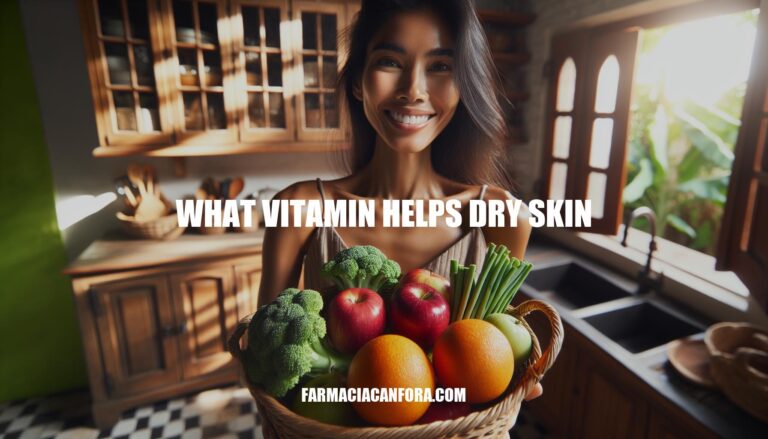


Vitamins play a crucial role in maintaining healthy skin by supporting various functions such as hydration, protection, and repair. They act as antioxidants, help in collagen production, and maintain the skin’s barrier function. Specifically, Vitamin D is known to help with dry skin by improving skin hydration and supporting the skin’s immune system.
Vitamin D plays a crucial role in maintaining skin health, particularly in improving skin barrier function and hydration. Here’s how it helps combat dry skin:
Enhancing Skin Barrier Function: Vitamin D promotes the production of cathelicidin, an antimicrobial peptide that helps maintain the integrity of the skin barrier. A strong skin barrier prevents moisture loss and protects against environmental irritants.
Improving Hydration: Vitamin D influences the skin’s hydration levels by regulating the expression of proteins involved in skin moisture retention, such as filaggrin. Filaggrin helps maintain the skin’s natural moisturizing factors, which are essential for keeping the skin hydrated.
Reducing Inflammation: Vitamin D has anti-inflammatory properties that can help reduce skin inflammation, which is often associated with dry skin conditions like eczema and psoriasis.
Supporting Skin Cell Growth and Repair: Vitamin D aids in the growth and repair of skin cells, ensuring that the skin remains healthy and resilient.
Studies and Evidence:
These findings underscore the importance of vitamin D in maintaining skin health and combating dry skin.
Vitamin E is a powerful antioxidant that helps protect skin cells from damage caused by free radicals. For dry skin, it offers significant benefits:
Vitamin C plays a crucial role in maintaining skin health, particularly for dry skin, by boosting collagen production and enhancing the skin barrier function.
Collagen Production: Vitamin C is essential for the synthesis of collagen, a protein that provides structure and elasticity to the skin. It stabilizes collagen mRNA, increasing collagen protein synthesis, which helps repair damaged skin. This process is vital for maintaining skin firmness and reducing the appearance of fine lines and wrinkles.
Skin Barrier Function: Vitamin C enhances the skin barrier function by promoting the differentiation of keratinocytes, the primary cells in the epidermis. This helps in forming a stronger barrier against environmental stressors and reduces water loss, which is crucial for preventing dry skin. Additionally, vitamin C’s antioxidant properties protect the skin from oxidative stress and UV-induced damage.
Research Findings:
These findings underscore the importance of vitamin C in skincare, particularly for those dealing with dry skin issues.
Vitamins play a crucial role in maintaining healthy skin, particularly for individuals dealing with dry skin issues. The article highlights the importance of three essential vitamins: Vitamin D, Vitamin E, and Vitamin C.
These vitamins support various functions such as hydration, protection, and repair, making them vital for addressing dry skin. Specifically, Vitamin D enhances skin barrier function, improves hydration, reduces inflammation, and supports skin cell growth and repair.
Vitamin E moisturizes the skin, protects it from environmental stressors, and promotes healing. Meanwhile, Vitamin C boosts collagen production, enhances skin barrier function, and protects against oxidative stress and UV-induced damage.
Studies have shown that these vitamins can significantly improve symptoms of dry skin conditions such as eczema and psoriasis. Therefore, incorporating these vitamins into your skincare regimen is essential for maintaining healthy and hydrated skin.